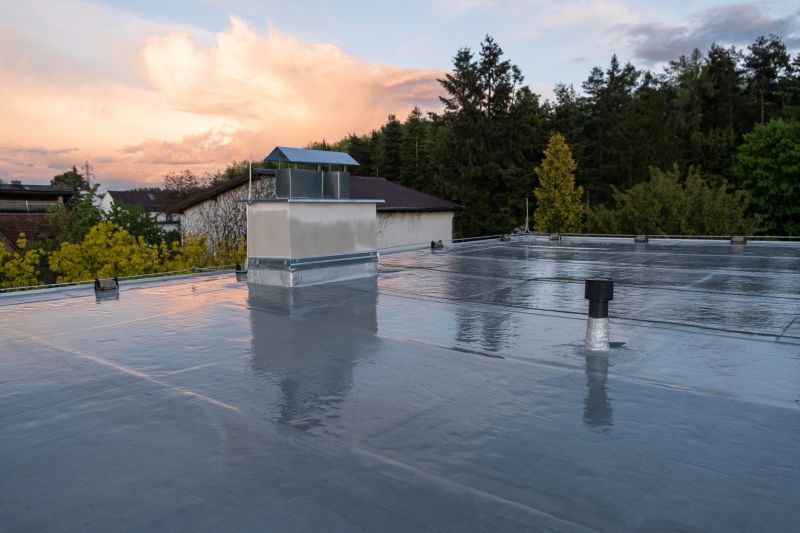Top-Rated Products For Roofing Service Contractors
Equip your team with industry-leading tools and materials designed to streamline roofing projects and maximize productivity.
 In the realm of roofing services, having the right products is essential for ensuring quality work and long-lasting results. From basic tools to specialized equipment, a comprehensive selection of materials and devices can help roofing professionals and DIY enthusiasts tackle projects effectively. Reliable roofing products not only facilitate installation and repairs but also contribute to the overall durability and safety of the roofing system. When selecting products, it is important to consider compatibility with specific roofing materials, ease of use, and durability to meet the demands of various roofing environments.
In the realm of roofing services, having the right products is essential for ensuring quality work and long-lasting results. From basic tools to specialized equipment, a comprehensive selection of materials and devices can help roofing professionals and DIY enthusiasts tackle projects effectively. Reliable roofing products not only facilitate installation and repairs but also contribute to the overall durability and safety of the roofing system. When selecting products, it is important to consider compatibility with specific roofing materials, ease of use, and durability to meet the demands of various roofing environments.
Top Overall Option
Comprehensive Roofing Toolkit
A well-equipped roofing toolkit that includes safety gear, essential hand tools, and versatile accessories can serve as an all-in-one solution for various roofing tasks. Designed for durability and ease of use, this type of product supports both professional contractors and serious DIYers in completing roofing projects efficiently and safely.
Types of Products For Roofing Service
Roofing Safety Harnesses
Safety harnesses designed for roofing work help prevent falls and ensure worker protection at heights.
Roofing Nails and Fasteners
Specialized nails and fasteners that secure shingles, metal panels, and membranes effectively.
Roofing Underlayment
Protective layers installed beneath shingles or other roofing materials to prevent water intrusion.
Roofing Sealants and Adhesives
Sealants and adhesives used to seal joints, vents, and seams for weatherproofing.
Roofing Membranes
Waterproof membranes suitable for flat roofs and low-slope applications.
Roofing Shingles
Various types of shingles, including asphalt, wood, and composite options, for different aesthetic and functional needs.
Roofing Tools and Hand Tools
Essential tools such as hammers, pry bars, and utility knives for installation and repairs.
Roofing Ventilation Products
Vents and attic fans that promote airflow and help regulate temperature.
Roofing Flashing
Metal or plastic pieces that direct water away from critical areas like chimneys and valleys.
Roofing Accessories
Additional items such as roof brackets, ladders, and safety lines to facilitate installation.
Roof Inspection Cameras
Cameras and drones used for inspecting hard-to-reach areas of roofs safely.
Roofing Cleaning Equipment
Tools and products for cleaning debris, moss, and algae from roofing surfaces.
Roofing Repair Patches
Patches and repair kits for quick fixes on damaged roofing areas.
Roofing Insulation
Insulation materials that improve energy efficiency and thermal regulation.
Popular Choices
Essential safety equipment for working at heights, offering secure support during roofing tasks.
Widely used fasteners suited for securing various roofing materials reliably.
Commonly selected for added protection against water intrusion beneath shingles.
Popular for sealing joints and preventing leaks in roofing systems.
Frequently used in flat roofing projects for waterproofing purposes.
A common choice for residential roofing projects due to ease of installation.
Versatile tools that are regularly used during installation and repair work.
Popular for improving attic ventilation and airflow.
Selected for directing water away from vulnerable roof areas.
Convenient for quick repairs on minor damages.
Frequently used for maintaining roof appearance and longevity.
Popular for inspecting difficult-to-access roof areas safely.
Essential for safe access during roofing projects.
Commonly chosen for energy efficiency improvements.
For professionals working on residential or commercial roofs, a well-rounded toolkit that includes safety gear, sealing materials, and specialized tools can make a significant difference. Proper safety equipment such as harnesses and helmets ensures worker protection, while quality adhesives and sealants help prevent leaks and extend roof lifespan. Additionally, the availability of different roofing membranes, fasteners, and underlayment options provides flexibility to address diverse project requirements. Investing in high-quality products can lead to more efficient workflows and better results, ultimately supporting the longevity of the roofing system.
In Picayune, MS, where weather conditions can vary, selecting appropriate roofing products is particularly important for weather resistance and maintenance. Local contractors and homeowners alike benefit from a curated selection of roofing supplies that are suited to the regional climate. Whether replacing an old roof or installing a new one, understanding the variety of available products and their specific uses can help ensure a successful project. Proper product selection, combined with skilled application, can contribute to safer, more durable roofing solutions tailored to the needs of the community.
Key Buying Considerations
- Compatibility with existing roofing materials and project specifications.
- Durability and weather resistance suited to regional climate conditions.
- Ease of installation and handling, especially for DIY projects.
- Safety features and compliance with relevant safety standards.
- Material quality and brand reputation for long-term performance.
- Cost-effectiveness and value for the investment.
- Availability of replacement parts and accessories.
- Weight and flexibility of materials for ease of transport and installation.
- Environmental resistance such as UV stability and corrosion resistance.
- Warranty options and manufacturer support.
- Compatibility with roofing design and aesthetic preferences.
- Ease of maintenance and repair over time.
- Size and coverage area to match project scope.
- Compatibility with existing tools and equipment.
- Local regulations and building codes compliance.
